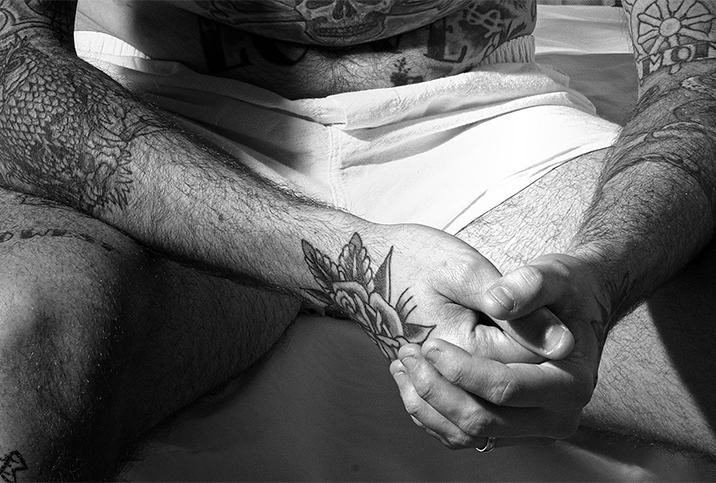Complications and Procedures of the Penis and Testicles

Penis and testicle health is vital to your overall sexual health and plays an important role in sexual pleasure and reproduction. However, since your penis and testicles are not protected by surrounding bones, they can be injured, which can create complications for fertility and sexual vitality.
Some of the more common injuries and complications for penis and testicle health occur because of exposure to harmful chemicals, athletic activities, sexual activities and falls.
Many penis and testicle injuries, though painful, resolve in time without causing permanent damage. However, if you experience lingering swelling, bruising or pain, you should seek medical treatment.
Common penis complications
Penis complications are more common than you may realize. While some are not serious and do not pose long-term effects, others can be medical emergencies in need of immediate treatment, including surgery.
A common penis complication is inflammation of the head or glans of your penis, known as balanitis. You may experience this condition if you are uncircumcised. Symptoms associated with balanitis include a rash, pain, itching, swelling and a foul-smelling discharge.
If you are uncircumcised, it's imperative to thoroughly clean under the foreskin of your penis. Your foreskin can be a breeding ground for bacteria because dead cells, debris and sweat can collect there.
If you have foreskin that is hard to pull back for cleaning, then you have a greater risk of developing balanitis. Yeast infections, sexually transmitted diseases (STDs) and skin irritations can also cause balanitis.
If you have balanitis because of an infection, your doctor will prescribe either antifungal or antibiotic medications. If you have recurring or severe balanitis, circumcision may be the optimal solution to resolve the complication.
Hypospadias, another common penis complication, is a birth defect in which a male's urethra develops abnormally in his penis. The urethra is a channel in the penis that normally has an opening (an exit for urine and sperm) at the tip of the penis. In hypospadias, the opening develops somewhere other than the tip. It might develop somewhere along the shaft of the penis or on the scrotum. Hypospadias occurs in 1 in 300 males.
Some research links a risk of hypospadias to mothers who are older when they conceive or undergo fertility treatment to conceive, have past exposure to toxic chemicals, are overweight, or smoke during pregnancy.
Hypospadias is relatively easy to correct with surgery, however, males who are born with hypospadias should not be circumcised. Corrective surgery is often done when the infant is between 6 and 12 months old. The foreskin, which is removed during circumcision, may be reused in the surgery to create a normal opening at the tip of the penis.
Another common penis complication is Peyronie's disease, which is the result of painful scar tissue (plaques) forming underneath the skin of the penis. This can cause the penis to indent or bend when it is erect.
Peyronie's may be caused by minor injuries to the penis, but it most often occurs because of vigorous sex.
Scar tissue from Peyronie's typically develops on the top of the penis. This can cause the penis to bend upward when it becomes erect. Occasionally, the scar tissue can develop on the bottom or side of the penis, which may make the penis bend sideways or downward during an erection.
You may have Peyronie's scar tissue form all the way around your penis. When you have an erection, your penis will not bend, but you will notice that the shaft of your penis is narrower. In serious cases, the scar tissue can collect calcium and become hard like bone.
Erections with Peyronie's disease can be very painful. If you have Peyronie's disease, the quality of your sexual experiences will diminish, and you and your partner may become frustrated with this intimate part of your relationship.
In most cases, Peyronie's disease can't be resolved without treatment. Oral medications are not recommended typically, as doctors tend to suggest penile injections (verapamil, interferon and collagenase).
Common testicle complications
Epididymitis is one of the most common testicle complications you may experience. The epididymis is the long, coiled tube that sits beside the testicles and transports sperm. If it gets inflamed or infected because of an injury, a sexually transmitted infection (STI) or as a side effect of testicular surgery, you may experience symptoms such as pain, fever, nausea, vomiting and testicular swelling.
If you experience these symptoms, you should see your primary care doctor as soon as possible. If your epididymitis is the result of bacterial infection, you will usually be prescribed antibiotics. If it is not because of bacterial infection, you can help the healing by elevating your scrotum, applying cold packs, resting and taking anti-inflammatory medications.
Another common testicle complication is a hydrocele, which occurs when fluid builds up around a testicle. Newborn males often experience a hydrocele, but the condition usually clears up by the time they turn 1 year old. When adult males experience a hydrocele, the cause is either an injury or inflammation in the scrotum.
Usually, the only symptom of a hydrocele is swelling in one or both of the testicles. Pain is atypical and it may go away without treatment. However, swelling may indicate a more serious problem, so you should see your doctor.
A varicocele is a common complication characterized by enlarged (dilated) veins in the scrotum. A varicocele is usually not painful or harmful, however, it is one of the primary causes for reduced sperm quality and low sperm counts.
If you have a varicocele, your testicles may not develop properly (childhood) or may shrink (adulthood). If you are experiencing pain with a varicocele, you should schedule an appointment with your primary care physician.
Men also experience hypogonadism, which occurs when the testicles do not produce adequate amounts of testosterone.
Testosterone is the male hormone most responsible for masculine features and also plays a vital role in your sex drive. When testosterone production is low, you may find your desire for sex is diminished and you could experience erectile dysfunction (ED) if you attempt sex.
Treatment for hypogonadism may include testosterone replacement therapy (TRT). Modes of delivery include patches, implants, gels and shots. If TRT is not successful, then an endocrinologist will check to make sure a secondary endocrine system condition is not the cause. TRT may produce negative side effects.
Finally, orchitis is a common testicle complication that involves inflammation of one or both testicles because of a bacterial or viral infection. Most instances of orchitis occur because of an STI, such as chlamydia or gonorrhea, but the mumps virus can cause orchitis, too.
Orchitis can be painful and could negatively impact fertility. Treatment for bacterial orchitis includes antibiotics, rest, elevating the scrotum, and taking anti-inflammatory medications to decrease swelling. Viral orchitis is treated with bed rest, anti-inflammatory medicines, and cold therapy applied to the testicles. The symptoms of viral orchitis usually begin to resolve within 10 days, but it may be a few weeks before the scrotal tenderness dissipates.
Circumcision
Circumcision is a surgery most often performed on male babies when they are just a few days old. During circumcision, the foreskin that covers the head of the penis is removed. Circumcision is optional—an estimated three-quarters or more of American male babies are circumcised—and is usually chosen by the parents because of religious beliefs, cultural customs or hygiene concerns.
However, there may be cases when circumcision is delayed or not done for medical reasons. If a male baby is born with hypospadias, for example, he will not be circumcised so his foreskin can be used for corrective surgery at a later time.
Circumcision has a few risks associated with it, but the benefits outweigh the risks. Men who are circumcised experience:
- Less penile infection, irritation and inflammation
- Fewer urinary tract infections (UTIs)
- Possible enhanced protection against STDs
- Better penile hygiene
Genital cosmetic surgery
If you experience penis and testicle complications, you may not be happy with the physical outcomes. Perhaps, you suffered severe Peyronie's disease and your penis looks smaller than it did before. Maybe you had testicular cancer and one or both testicles were removed. Or maybe varicoceles caused your testicles to shrink.
Genital cosmetic surgery is an option you can use to enhance your penis size or restore the look and feel of your testicles after penis and testicle complications.
It may be worth the cost in self-esteem and confidence in your sexual vibrancy to consider paying out of pocket for genital cosmetic surgery.


















